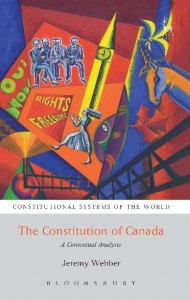International Symposium, University of Mainz, 25-27 June 2015
Organizers: Dr. René Dietrich (Mainz), Prof. Dr. Kerstin Knopf (Bremen)
This conference takes issue with biopolitics and geopolitics in the settler nation-states of North America, executed through continuing techniques of dispossession and surveillance of Indigenous populations, as well as with corresponding forms of sovereignty, agency, and life exercised in the matrix of biopower.
Biopolitical attempts to regulate Indigenous peoples – via removal, assimilation, education, administration, representation, genealogical politics, surveillance and disciplinary regimes – subject Indigenous nations to settler colonial rule by depoliticizing them. Biopolitical practices act towards Indigenous nations not as sovereign political entities in their own right, but subsume them under the imaginary racialized population of ‘Indians’ that is mainly defined through its separation from the settlers’ body politic proper. At the same time, Morgan Brigg’s concept of ‘terrapolitics’ and Mark Rifkin’s concept of ‘bare habitance’ have crucially pointed out that discussions of settler colonial biopolitics of racialization and regulation should not come at the expense of geopolitics of dispossession and removal. In this light, recent interrogations of settler colonial violence against Indigenous lands and lives in the production of colonial space in the U.S. and Canada (Mishuana Goeman) and the employment of “Indianness” for the transit of U.S. empire (Jodi Byrd) manifest the link between theories of bio- and geopolitics as an integral instrument to critique settler colonial techniques and practices.
Life itself, however, was less in the focus of critical inquiry. Putting forth that life is situated at a crucial junction between bio- and geopolitics, this conference wants to advance recent work by exploring and theorizing the different politics and epistemologies (concepts, forms, knowledges) of life in settler and Indigenous contexts in relation to bio- and geopolitical practices. It seeks to investigate how these can help to formulate ‘life’ as a category for political analysis and critique in settler-Indigenous relations, in evolving formations of sovereignty and agency, and in the struggle for decolonization.
We thus invite scholars of various disciplines engaged in these issues to discuss how an in-depth exploration of ‘life’ as a critical concept and political category in the tension between bio- and geopolitical practices and Indigenous forms of sovereignty and agency helps to further illuminate the complex, contested and still largely asymmetrical relations and interactions between settler colonialisms and Indigenous presences in North America.
Confirmed speakers: Mishuana Goeman (U of California), Mark Rifkin (U of North Carolina), Andrea Smith (U of California), Michael R. Griffiths (U of Wollongong), Robert Nichols (U of Minnesota), Audra Simpson (Columbia U), Kathy-Ann Tan (Tuebingen), Brian Hudson (U of Oklahoma), Gesa Mackenthun (Rostock), Sandy Grande (Connecticut College), Norbert Finzsch (Cologne), Jaqueline Fear-Segal (East Anglia), Ursula Lehmkuhl (Trier), Sabine N. Meyer (Osnabrueck), René Dietrich (Mainz).
The symposium features a reading by Deborah A. Miranda (Raised by Humans. Poems, 2015; Bad Indians. A Tribal Memoir, 2013)
For further information see: http://www.blogs.uni-mainz.de/fb05-indigstudiesconf/
For any questions please contact: dietricr@uni-mainz.de, kknopf@uni-bremen.de

